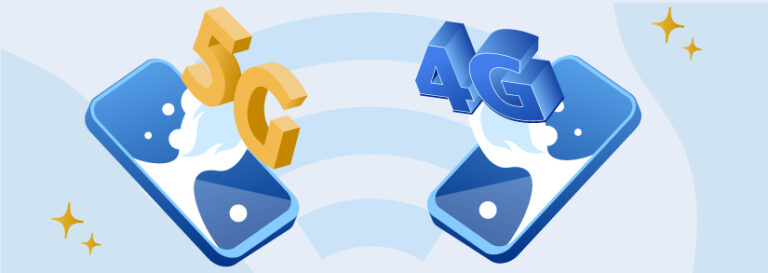Best Language for Web Development
Web development is one of the most important fields in today’s world. The web has become a major part of our lives and we can’t imagine our life without it.
Though it is possible to develop professional websites without the knowledge of web development languages, using WordPress CMS.
WordPress is an open source content management system and almost all the webhosting companies provide one click WordPress installation option when you buy hosting for your website.
WordPress officially recommends Bluehost for hosting WordPress sites. You could get started with Bluehost and launch your website in no time.
Bluehost cost is very affordable and is beginner friendly to start with the web development.
Web development provides us with many benefits that make our life easier, but also it brings some problems as well. One of them is the fact that there are so many languages used to develop websites. There are more than 100 different languages that you could use to build your website. And this list will be growing every day because new programming languages are being created all the time. So how do you choose which language to use? Let’s find out!
What Is A Programming Language?
A programming language is a computer language that allows programmers to write instructions for computers. These instructions tell the computer what to do and they are called programs or scripts. The first thing you need to know about programming languages is that they have their own syntax. This means that each programming language uses its own set of symbols (words) to express ideas. For example, if you want to say “Hello World” in C++, you would type:
using namespace std;
int main() {
}
The include directive tells the compiler where to look for files. Using the using directive makes sure that the program knows what cout is and how to print text on the screen. You might not understand everything that was said here, but hopefully you got an idea of what a programming language is. If you don’t know anything about programming, you should start by learning Python.
The Basics Of Programming Languages
Python is one of the easiest programming languages to learn. It is very easy to read and understand. It is ideal for beginners who are just starting out. In addition, Python is free and open source. This means that anyone can download it and modify it. Also, it is cross-platform meaning that it works on any operating system. Another great thing about Python is that it has a large community of people who support it. They provide training courses, books, and videos.
Another good reason why you should consider learning Python is that it is extremely versatile. It can be used for almost any kind of project. From simple games to complex applications, Python can handle it.
You can use Python to create websites, mobile apps, desktop software, and much more. Even though Python is considered a beginner level language, it is still powerful enough to help you accomplish a lot.
Why Should I Learn Python?
There are several reasons why you should learn Python. First of all, it is one of the fastest growing programming languages. According to Wikipedia, Python is currently the third most popular programming language after Java and JavaScript. Second, Python is free and it is open source. Third, it is cross platform meaning that it runs on Windows, Mac OS X, Linux, Android, iOS, etc. Fourth, Python has a huge community of developers who support it. Finally, it is relatively easy to learn. All these reasons are enough to convince you to learn Python.
If you are looking for a way to get started with Python, then you should check out Codeacademy. It offers a variety of tutorials for beginners. You can even sign up for a free account.
How To Choose A Programming Language
Choosing a programming language is not always easy. There are many factors that come into play when choosing a language. Some of the things that you need to think about are:
- Your experience level – When selecting a language, you need to figure out whether you are a beginner or advanced programmer. Beginners usually choose easier languages like Python while experts prefer harder ones like C++.
- What you plan to build – Do you want to make a website or a game? Will your application run on multiple platforms? How big will it be?
- Time constraints – Are there deadlines that you must meet?
- Budget – How much money do you have available?
- Other skills – Do you already have other programming skills? If so, which ones?
- Personal preference – What do you enjoy doing?
- Availability – Is the language supported by libraries or tools that you already know?
- Career path – Where do you see yourself in five years?
- Support – Does the language have a strong community?
- Learning resources – Which resources are best for learning the language?
- Community – How active is the community?
- Cost – How expensive is the language compared to others?
- Compatibility – Is the language compatible with other languages?
- Licensing – Can you use the language without paying extra fees?
- Ease of installation – How hard is it to install the language?
- User interface – How intuitive is the user interface?
- Documentation – How well documented is the language?
- Security – How secure is the language?
- Performance – How fast does the language perform?
- Portability – How portable is the language?
- Reputation – How reputable is the language?
- Readability – How readable is the code?
- Debugging – How good is the debugging tool?
- Concurrency – How good is the concurrency model?
- IDE – How good is the integrated development environment (IDE)?
- Extensibility – How extensible is the language?
- Modularity – How modular is the language?
- Platform independence – How independent is the language from the operating system?
- Error handling – How good is error handling?
- Project management – How organized is the project management process?
- Testing – How good is testing?
- Version control – How version control works?
- Unit testing – How good is unit testing?
- Coverage – How good is coverage?
- Maintainability – How maintainable is the code?
- Testability – How testable is the code? How good is the testability?
- Reusability – How reusable is the code?
- Scalability – How scalable is the code?
- Design patterns – How well designed are design patterns?
- Architecture – How well designed is the architecture?
Other Web Development Languages
Here are some of the best language for web development:
HTML5
HTML 5 is an open standard that allows developers to create dynamic websites with ease. It helps in creating responsive and cross-browser compatible websites. HTML5 provides many features like drag & drop functionality, video support, audio support, etc.
CSS3
It is a style sheet language which is used to define how elements on a webpage look like. CSS3 allows designers to change the layout of their pages by using different properties such as font size, color, background color, border radius, etc.
JavaScript
This is a programming language which is used to add interactivity to a website. JavaScript is also known as client side scripting because it runs on the browser and not on the server.
PHP
This is a server side scripting language which is mainly used to build dynamic websites. PHP is very easy to use and understand. If you have any kind of experience in coding then you will be able to work with this language easily.
Ruby on Rails
Ruby on rails is an object oriented framework which makes developing websites easier than ever before. Ruby on rails is a complete package which includes everything from database management to deployment.
ASP.NET MVC
ASP.NET is a Microsoft technology which is used to create dynamic websites. ASP.NET MVC is a specific version of ASP.NET which is designed specifically for building web applications.
Django
Django is a Python based framework which is used to build high performance websites. Django is highly scalable and secure.
Javascript Frameworks
These frameworks help in making web development much simpler. They provide a set of tools and libraries that allow programmers to write code quickly and efficiently. Some of the popular javascript frameworks include AngularJS, Backbone JS, Ember JS, Knockout JS, React JS, Vue JS, etc.
Conclusion
If you are looking to start learning web development then you must know about all these languages. These languages are extremely useful for both beginners and professionals. So, don’t wait anymore and get started.






![[pii email 1a85c09ee7a236c446b6]](https://trendy2news.com/wp-content/uploads/2022/03/How-to-Repair-pii-email-1a85c09ee7a236c446b6-Error-Codes.jpg)
